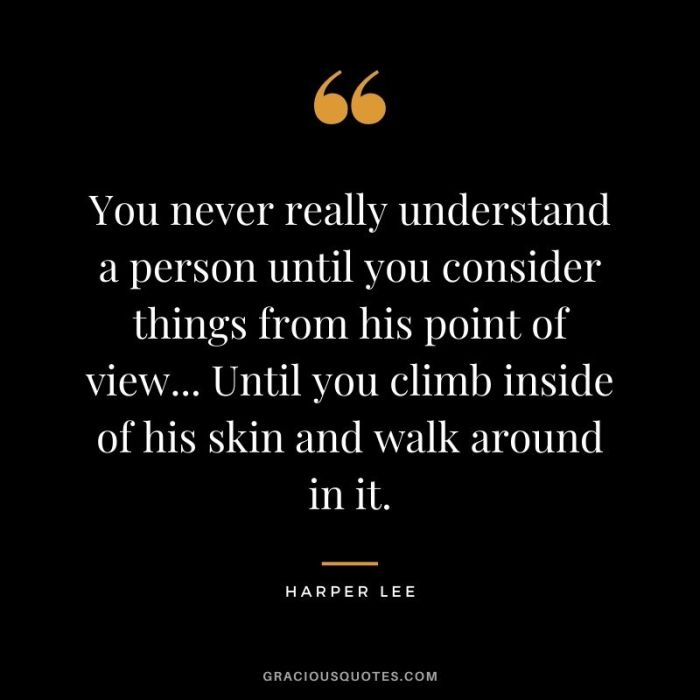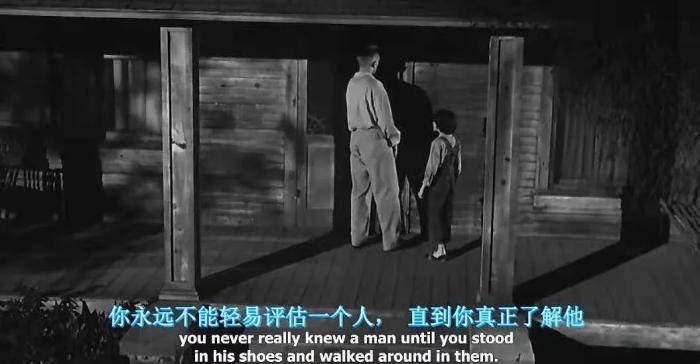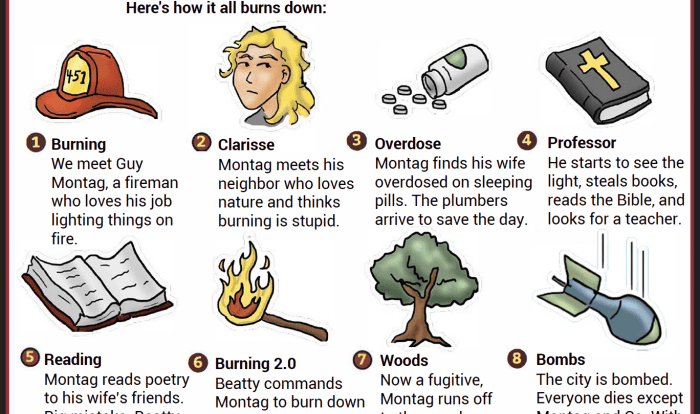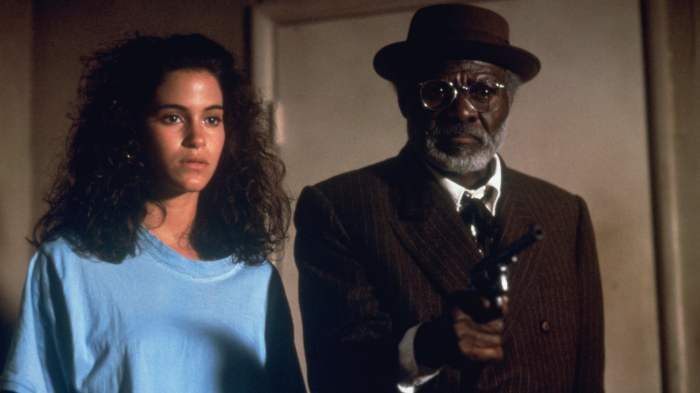Quotes about education in To Kill a Mockingbird, a beloved American classic, offer profound insights into the transformative power of education and its impact on individuals and society. Harper Lee’s timeless novel explores the complexities of education, prejudice, and justice through the eyes of Scout Finch, a young girl growing up in the American South during the 1930s.
Throughout the novel, characters grapple with the challenges and rewards of education, shaping their perspectives and influencing the narrative’s trajectory. These quotes provide a rich tapestry of ideas, inviting readers to reflect on the role of education in shaping individuals and fostering a just and equitable society.
Defining Quotes and Education in To Kill a Mockingbird: Quotes About Education In To Kill A Mockingbird

Quotes, or memorable phrases, serve as powerful literary tools that capture the essence of a character’s beliefs and values. In Harper Lee’s classic novel, To Kill a Mockingbird, quotes about education play a pivotal role in shaping the narrative and conveying the novel’s central themes.
Education in To Kill a Mockingbirdencompasses both formal schooling and the broader process of learning and growing. It is a force that empowers characters to question the world around them, develop their own values, and make informed decisions.
Key Themes and Symbolism
The novel explores several key themes related to education, including:
- Prejudice: The novel highlights the corrosive effects of prejudice and its impact on individuals and society.
- Justice: The pursuit of justice is a central theme in the novel, and education plays a crucial role in fostering a sense of fairness and equality.
- Empathy: Education can cultivate empathy, the ability to understand and share the feelings of others.
The schoolhouse in To Kill a Mockingbirdserves as a symbol of both the potential and limitations of education. It is a place where students can learn and grow, but it is also a microcosm of the wider society, with its own prejudices and injustices.
Specific Character Perspectives, Quotes about education in to kill a mockingbird
Different characters in To Kill a Mockingbirdhave distinct perspectives on education:
- Atticus Finch: Atticus believes in the transformative power of education and strives to instill in his children a love of learning and a commitment to justice.
- Scout Finch: Scout is a curious and inquisitive child who learns valuable lessons both inside and outside the classroom.
- Miss Maudie Atkinson: Miss Maudie is a wise and compassionate woman who believes that education should foster critical thinking and a sense of community.
Impact on the Narrative
The quotes about education in To Kill a Mockingbirddrive the plot and contribute to the novel’s overall message. They:
- Provide insight into the characters’ motivations and beliefs.
- Highlight the importance of education in shaping individual and societal values.
- Underscore the novel’s exploration of social and racial injustice.
Contemporary Relevance
The quotes about education in To Kill a Mockingbirdcontinue to resonate in contemporary society:
- They remind us of the importance of critical thinking, empathy, and social justice in education.
- They challenge us to examine our own biases and prejudices.
- They inspire us to strive for a more just and equitable world.
Frequently Asked Questions
What is the significance of education in To Kill a Mockingbird?
Education plays a pivotal role in the novel, shaping the characters’ perspectives and influencing the narrative’s trajectory. It is seen as a means of fostering critical thinking, empathy, and social justice.
How do quotes about education drive the plot of To Kill a Mockingbird?
Quotes about education provide insights into the characters’ motivations, conflicts, and growth. They serve as catalysts for plot development, driving the narrative forward and shaping the reader’s understanding of the novel’s themes.
What are some key themes related to education in To Kill a Mockingbird?
The novel explores themes such as the importance of empathy, the challenges of prejudice, and the power of education to transform individuals and society.




